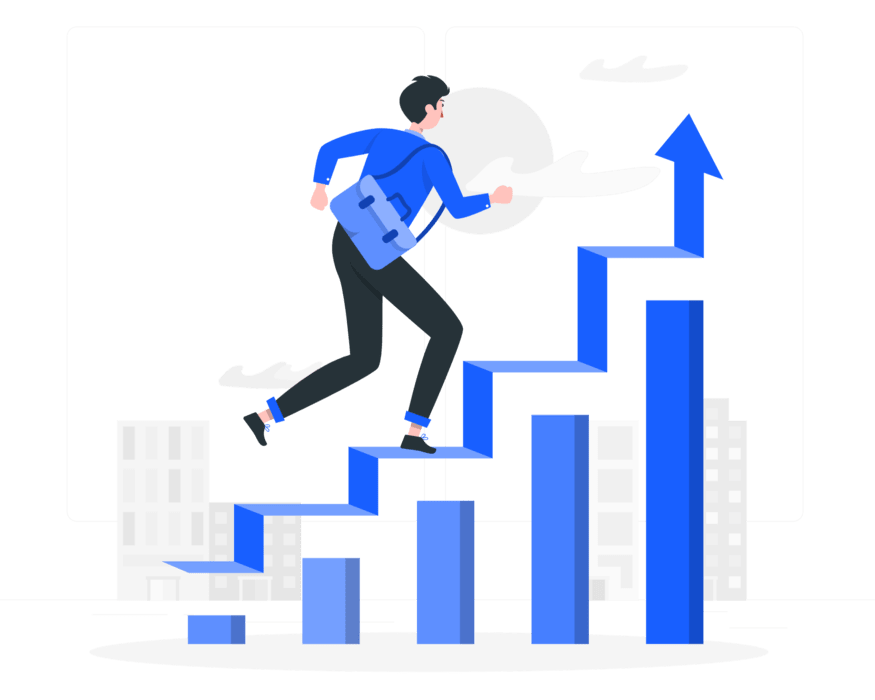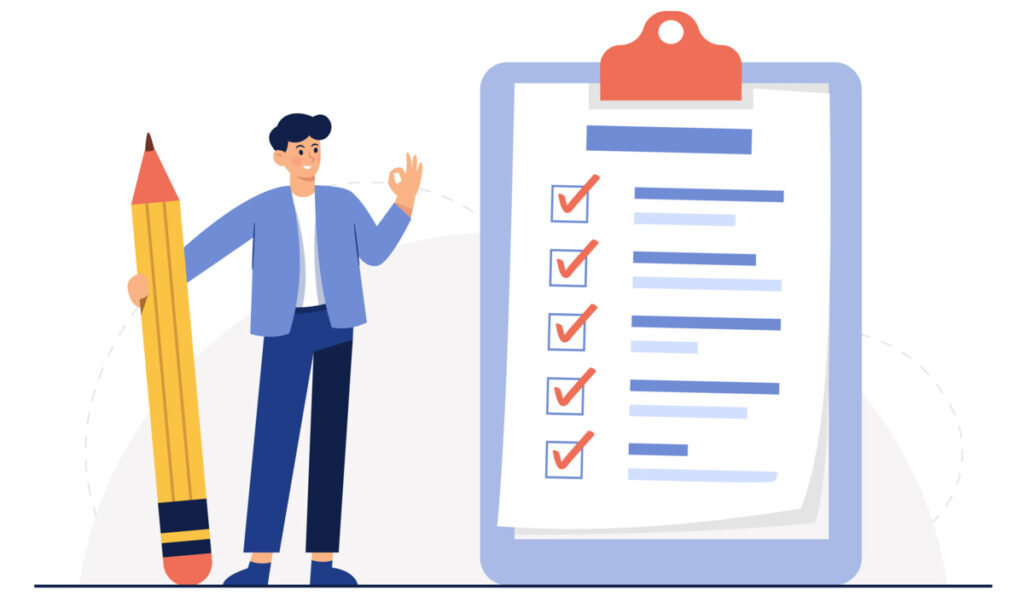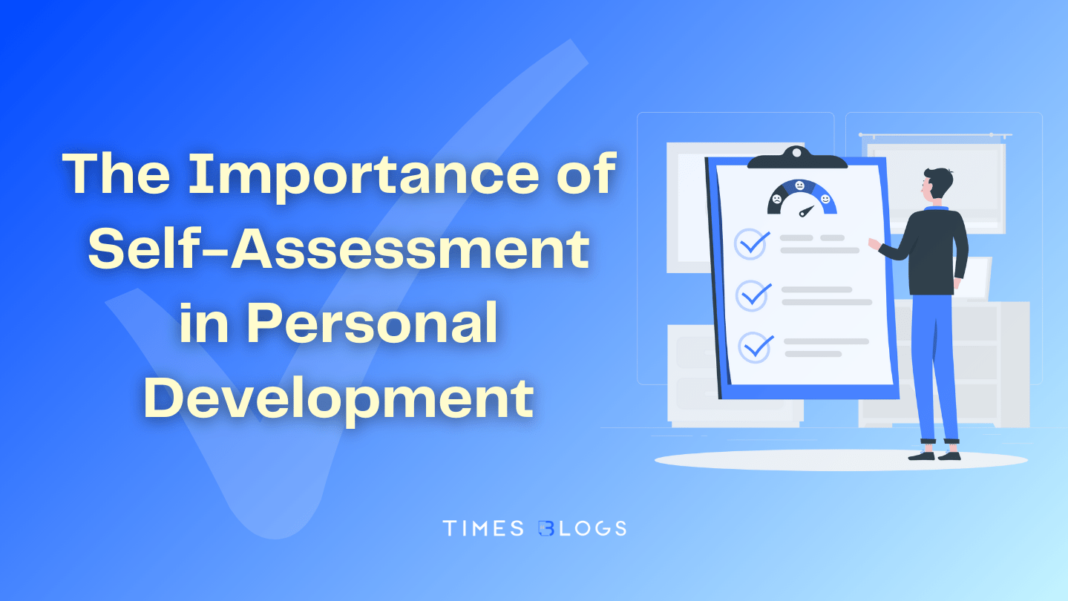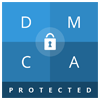In an ever-evolving world where change is the only constant, personal growth remains at the forefront of success, satisfaction, and overall well-being. While there are countless tools and techniques available for individuals to utilize in their journey toward self-improvement, few hold as much significance as the simple act of self-assessment. Understanding the importance of self-assessment can pave the way for a more mindful, purposeful, and transformative life, while also serving as a lighthouse guiding our ships amidst the stormy seas of challenges.
At its core, the act of self-assessment is akin to standing in front of a mirror, not to notice the superficial blemishes but to truly understand the depths and dimensions of our own being. Before we embark on a journey of personal development, it’s essential to know where we are starting from. This awareness and insight serve as the foundation upon which we can build our dreams, hopes, and aspirations. Let’s delve deeper into the importance of self-assessment in personal development.
Table of Contents
What is Self-Assessment?
Navigating through the intriguing voyage of personal development without a compass is like embarking on a perilous journey without a guide. In the vast realm of personal growth, the tool serving as your compass and guide is none other than self-assessment.
Understanding Self-Assessment
In the pursuit of personal development, addressing the fundamental query, “Where do I stand presently?” is crucial. This is the core concern self-assessment aims to resolve. It represents a process of systematic self-reflection, a practice where you delve deep within yourself, evaluating your capacities, goals, accomplishments, and aspects needing refinement.
Let’s break it down:
- Performance: Self-assessment requires critically analyzing how efficiently you fulfill your responsibilities and execute tasks, ranging from professional duties at the workplace to personal objectives and targets.
- Skills: It necessitates acknowledging and identifying your strong suits. Are you proficient in communication? Perhaps, are you adept at strategizing? Recognizing these skills provides a basis to further enhance and utilize them effectively.
- Values: Undertaking self-assessment means delving into deeper existential questions, such as what you fundamentally value and stand for, and what ethical principles underpin your decisions and actions.
- Behaviors: It also entails a close examination of your behavioral patterns, understanding your reactions to varying circumstances, interactions with others, and the habitual patterns dictating your everyday life.
Beyond the Surface
Self-assessment is not merely a superficial overview of your accomplishments; it is not simply a scoreboard tallying your triumphs and setbacks. Instead, it is a process that goes deeper, compelling you to engage with and understand your essence. This includes:
- Strengths: Acknowledging and valuing your areas of expertise and strength.
- Weaknesses: Identifying and working on the facets where improvement is needed.
- Opportunities: Recognizing potential avenues for growth and development, be it acquiring new skills or taking on new challenges.
- Threats: Being conscious of the external elements or personal constraints that may potentially impede your personal and professional development journey.
Self-assessment, therefore, is an introspective tool that not only highlights your skills and achievements but also pushes you to explore deeper, providing a clear understanding of who you are at the core. This comprehensive awareness and understanding is essential as you navigate through the intricate waters of personal development.

Why is the Self-Assessment so Crucial in Personal Development? Importance of Self-Assessment
Imagine setting out on an expedition without a map or compass. The journey would be fraught with uncertainty, and reaching the desired destination would become an immense challenge. In the context of personal development, self-assessment acts as this crucial map and compass, guiding individuals on a path that aligns with their innate strengths, values, and aspirations.
Foundation for Growth
Understanding one’s current position is the cornerstone for any kind of progress. The importance of self-assessment lies in its ability to provide clarity. By recognizing your strengths and acknowledging areas that need improvement, you’re better equipped to set actionable goals tailored to your unique self.
Enhanced Self-Awareness
Self-assessment promotes a heightened sense of self-awareness. When you continuously assess yourself, you gain insights into your motivations, beliefs, and behaviors. This deeper understanding aids in making decisions that resonate with your core values, further reinforcing the importance of self-assessment in personal development.
Empowered Decision-Making
Every choice we make, big or small, influences our personal development trajectory. Through self-assessment, individuals can gauge the outcomes of past decisions, learn from them, and use these insights to make better future choices. This iterative process of decision-making, assessment, and learning is central to growth.
Tracking Progress and Celebrating Achievements
Self-assessment isn’t just about identifying areas for improvement. It’s also about acknowledging and celebrating the progress made and milestones achieved. Recognizing these successes, no matter how big or small, serves as a motivator, urging individuals to persist in their personal development journey.
Identifying Skills and Gaps
In the realm of personal development, recognizing one’s skills is as important as identifying gaps. Self-assessment provides a balanced perspective, enabling individuals to leverage their strengths while working on areas that need further refinement.
Realigning and Refocusing
Life, with its myriad experiences, can sometimes lead individuals astray from their desired path. Regular self-assessment acts as a recalibration tool, helping them realign with their goals and refocus their energies in the right direction.
In conclusion, the importance of self-assessment in personal development is profound. It serves as a guiding light, ensuring that the journey of growth is purposeful, directed, and fulfilling. It’s the bridge that connects one’s current self with the future self they aspire to be.
The Link Between Self-Assessment and Personal Development
In the dynamic landscape of personal growth, where each step can lead to profound transformation, understanding the intricate relationship between self-assessment and personal development becomes paramount. This link is analogous to the connection between the roots of a tree and its flourishing canopy: one anchors and nourishes, while the other grows, evolves, and reaches new heights.
The Reflective Mirror
At its core, self-assessment operates as a reflective mirror, candidly showcasing our strengths, areas of improvement, aspirations, and behavioral tendencies. It doesn’t just show us who we are, but it also subtly hints at the potential of who we could become. In this sense, the importance of self-assessment is intertwined with the essence of personal development, as both are geared towards reaching an elevated state of self-awareness and growth.
Guided Evolution
Personal development is a journey, a continuous endeavor of evolving and becoming better. But how does one ascertain the direction of this evolution? This is where self-assessment plays a pivotal role. By frequently gauging our skills, values, and performances, we can set clearer goals, ensuring that our personal development aligns with our authentic selves.
Feedback Mechanism
Consider self-assessment as the feedback mechanism in the grand machinery of personal development. It keeps the system in check, highlighting the areas that are functioning optimally and pointing out those that require recalibration. This continuous loop of action, assessment, and improvement propels the machinery of personal development forward with precision and purpose.
A Path to Authenticity
One of the hallmarks of personal development is the pursuit of authenticity. Through self-assessment, individuals get a clearer sense of their genuine selves, shedding away pretenses and societal expectations. As they understand themselves better, their personal development journey becomes more authentic, steering them closer to their true essence.
Adaptive Growth
Change is the only constant, and our personal development journey is no exception. As we navigate through life’s twists and turns, our goals, aspirations, and circumstances may shift. Self-assessment ensures that our personal development remains adaptive, helping us pivot and adjust to these changes, ensuring that growth remains consistent, relevant, and aligned.
In conclusion, The link between self-assessment and personal development is deep-rooted and symbiotic. While self-assessment lays the groundwork, providing clarity and direction, personal development embodies the action, and the strides we take towards becoming our best selves. Together, they create a harmonious dance of introspection and growth, guiding individuals toward a life of fulfillment, purpose, and authenticity.

Benefits of Regular Self-Assessment
In a world that often prizes external achievements, it’s easy to overlook the internal mechanisms that truly drive growth and success. One such mechanism is self-assessment. Much like how routine health check-ups are crucial for physical well-being, regular self-assessments are vital for holistic personal development. Delving into the importance of self-assessment, let’s explore the myriad benefits it brings to the table when practiced consistently.
1. Increased Self-Awareness:
Regular self-assessment illuminates the nuances of our personality, strengths, weaknesses, desires, and fears. By consistently checking in with ourselves, we foster a deepened self-awareness, enabling more informed life choices.
2. Goal Setting and Refinement:
As we evolve, so do our aspirations. Periodic self-assessments help in setting clear, achievable goals and modifying existing ones to ensure they align with our evolving sense of purpose and self.
3. Personal growth:
By routinely evaluating our actions and their outcomes, we develop a sense of responsibility toward our own growth. This heightened personal accountability ensures that we remain proactive in our journey of personal development.
4. Boosted Confidence:
Recognizing our achievements and understanding our potential through self-assessment can significantly bolster self-esteem. When we are aware of our capabilities, we approach challenges with increased confidence and determination.
5. Unearth Hidden Potential:
Regular introspection can reveal latent talents, skills, or interests that might have otherwise remained obscured. By bringing them to light, we can explore new avenues of growth and fulfillment.
6. Constructive Feedback Loop:
Consistent self-assessment creates a continuous feedback loop. This not only helps in identifying areas of improvement but also provides a mechanism to celebrate progress, however incremental it might be.
7. Informed Decision Making:
With a clearer understanding of our strengths, values, and areas of growth, decision-making becomes more aligned with our true selves. Whether it’s a career choice, personal commitment, or a life-changing decision, regular self-assessment guides the process with clarity.
8. Emotional Regulation and Resilience:
By understanding our emotional triggers, responses, and patterns, we can better navigate life’s ups and downs. This emotional intelligence, cultivated through regular self-assessment, fosters resilience in the face of adversity.
9. Alignment with Core Values:
Periodic introspection ensures that our actions and decisions resonate with our deeply held beliefs and values, ensuring authenticity in our pursuits.
10. Continuous Learning and Adaptability:
The world around us is in a constant state of flux. Regular self-assessment fosters a mindset of adaptability and continuous learning, ensuring we remain relevant, agile, and ready to embrace change.
In essence, the benefits of regular self-assessment transcend mere personal development metrics. It’s a compass, ensuring we remain true to ourselves in a world brimming with distractions. By making it a habitual practice, we set the stage for a life rich in purpose, understanding, and fulfillment.

Tools and Techniques for Effective Self-Assessment
To truly grasp the importance of self-assessment in personal development, it’s essential to understand the tools and techniques that can facilitate this introspective journey. Just as a craftsman requires the right tools to perfect his craft, individuals seeking growth benefit immensely from leveraging the right self-assessment tools. Let’s delve into some of the most effective tools and techniques to enhance your self-assessment process:
1. SWOT Analysis:
Borrowed from the corporate world, the SWOT (Strengths, Weaknesses, Opportunities, Threats) analysis provides a structured way to evaluate oneself. It offers insights into areas where you excel, where there’s room for improvement, potential opportunities, and possible obstacles in your personal development journey.
2. Reflective Journaling:
Keeping a daily or weekly journal helps in tracking thoughts, feelings, and experiences. Over time, patterns emerge, providing deep insights into behaviors, triggers, and areas of growth.
3. Psychometric Tests:
There are numerous online tools and tests, such as the Myers-Briggs Type Indicator (MBTI) or the CliftonStrengths assessment, designed to offer insights into personality types, strengths, and potential career paths.
4. Feedback Collection:
While self-assessment is introspective, collecting feedback from peers, mentors, and family can provide an external perspective. Constructive feedback can illuminate blind spots and validate or challenge one’s self-perceptions.
5. Goal Setting Tools:
Tools like SMART (Specific, Measurable, Achievable, Relevant, Time-Bound) criteria can assist in setting clear and actionable goals, making the process of self-assessment more tangible and directed.
6. Mind Mapping:
Visual tools like mind maps can help in organizing thoughts, tracing behaviors to their root causes, and identifying areas of focus. They provide a visual snapshot of where one stands and where one wishes to head.
7. Meditation and Mindfulness Practices:
These techniques foster increased self-awareness. By practicing regular mindfulness and meditation, one can cultivate a heightened sense of presence, aiding in introspection and clarity.
8. 360-Degree Feedback:
Typically used in professional settings, this tool involves collecting feedback about an individual from their subordinates, peers, and supervisors. It offers a comprehensive view of one’s skills, performance, and areas of improvement.
9. Personal Development Plans (PDPs):
Creating a PDP post-self-assessment allows for a structured approach to growth. It involves identifying areas of focus, setting goals, and charting out actionable steps to achieve those goals.
10. Digital Apps and Platforms:
The digital age has brought forth numerous apps and platforms designed to facilitate self-assessment and personal development. These tools, often equipped with trackers, reminders, and insights, make the process more interactive and accessible.
Incorporating these tools and techniques into your self-assessment routine can significantly enhance the quality of insights and the overall effectiveness of the process. Remember, while these tools are valuable, the real power of self-assessment lies in the consistent, honest, and open introspection that one brings to the table.
Check our related articles:
Career Related Articles:
- Step-by-Step Guide: How to Plan Your Career Change at 40
- Is Consumer Services a Good Career Path? An In-Depth Analysis
- Is Energy a Good Career Path? A Deep Dive into the Future of Energy Jobs
- Is Health Care a Good Career Path? An In-Depth Analysis
- Navigating the IT Career Path: From Entry Level to Leadership Roles
Overcoming the Challenges of Self-Assessment
While understanding the importance of self-assessment in personal development is paramount, it’s equally vital to acknowledge the challenges that come with it. These challenges can sometimes hinder the process, but with the right strategies, they can be addressed effectively. Let’s delve into common obstacles and ways to navigate through them:
1. Cognitive Biases:
Challenge: Our perceptions can often be colored by cognitive biases, which can lead to skewed self-assessments.
Solution: Regularly seeking external feedback, attending self-awareness workshops, and using structured tools can help in counteracting these biases.
2. Overestimation or Underestimation:
Challenge: It’s not uncommon to either overestimate our abilities, leading to complacency or underestimate them, resulting in a lack of confidence.
Solution: Comparing self-assessment results with feedback from peers, mentors, or through 360-degree feedback can provide a more balanced perspective.
3. Fear of Facing Weaknesses:
Challenge: Confronting one’s own weaknesses can be daunting and uncomfortable.
Solution: Adopting a growth mindset, understanding that weaknesses are not permanent but areas of potential growth, can make the process less intimidating.
4. Lack of Consistency:
Challenge: Irregular self-assessments can lead to outdated insights and missed growth opportunities.
Solution: Setting up periodic reminders, integrating self-assessment into routines, and using digital platforms can help ensure regularity.
5. Ambiguity in Interpretation:
Challenge: Sometimes, the results of a self-assessment can be ambiguous, making it difficult to derive actionable insights.
Solution: Using structured tools, discussing results with mentors or coaches, and setting clear criteria can provide clarity.
6. Overwhelm from Too Much Information:
Challenge: Extensive self-assessments can sometimes result in an information overload, leading to paralysis by analysis.
Solution: Breaking down the assessment into smaller, focused segments and tackling one area at a time can make it more manageable.
7. Emotional Resistance:
Challenge: Delving deep into oneself can sometimes unearth suppressed emotions or memories.
Solution: Seeking support, whether through counseling, peer groups, or mentors, can provide a safe space to process these emotions.
8. Procrastination:
Challenge: Postponing self-assessment due to perceived complexity or fear of results.
Solution: Starting with shorter, simpler assessment tools and gradually progressing to more detailed ones can reduce the inertia.
9. Relying Solely on Intuition:
Challenge: Depending solely on one’s gut feeling without structured evaluation can lead to incomplete insights.
Solution: Balancing intuition with structured tools and methods ensures a holistic assessment.
10. Misaligned Goals:
Challenge: Setting goals based on skewed self-assessments can lead to misaligned personal development plans.
Solution: Regularly revisiting and adjusting goals based on consistent self-assessment ensures alignment with one’s true aspirations.
In essence, while the journey of self-assessment comes with its share of challenges, understanding and addressing them proactively can significantly enhance the efficacy of the process. Remember, self-assessment isn’t about perfection; it’s about progress, growth, and continual refinement.
Making Self-Assessment an Integral Part of Your Growth Journey
In the theater of personal development, self-assessment is not merely an act; it’s a recurring theme, one that plays a pivotal role throughout the narrative. The importance of self-assessment cannot be relegated to an occasional endeavor but should be integrated as a consistent practice. So, how can one weave self-assessment seamlessly into the fabric of their growth journey?
1. Establish a Routine:
Set aside dedicated time, be it weekly, monthly, or quarterly, for introspection. This consistent commitment ensures that self-assessment becomes a habitual part of your growth journey.
2. Use Technology to Your Advantage:
Leverage digital platforms, apps, and tools designed for self-assessment. Notifications and reminders can prompt regular introspection, while the platform itself can offer insights and track progress.
3. Marry Self-Assessment with Goal Setting:
After every self-assessment, revisit your goals. Are they still relevant? Do they need tweaking? By linking assessment with goal refinement, you ensure a dynamic and adaptive personal development plan.
4. Seek External Perspectives:
Regularly engage with mentors, peers, or coaches. Their feedback, coupled with your self-assessment, provides a holistic view, ensuring a balanced growth trajectory.
5. Participate in Workshops and Training:
Engage in personal development workshops that emphasize self-assessment. Not only do they offer tools and techniques, but they also reinforce the importance of regular introspection.
6. Document Your Journey:
Keep a journal or digital log. Documenting your self-assessment findings, feelings, and subsequent actions creates a roadmap of your growth journey, providing valuable insights over time.
7. Celebrate Milestones:
Self-assessment isn’t just about finding areas of improvement. It’s also about acknowledging achievements. Celebrating milestones, however small, brings positivity and motivation to the process.
8. Stay Open to Change:
The very essence of self-assessment is to identify areas for change. Thus, it’s crucial to remain receptive to the insights it brings and be willing to adapt and evolve accordingly.
9. Practice Mindfulness:
Incorporate mindfulness exercises into your daily routine. Being present and aware enhances the quality of your self-assessments, making them more profound and insightful.
10. Continuously Educate Yourself:
The world of personal development and self-assessment is ever-evolving. Stay updated with the latest tools, techniques, and best practices. Continuous learning ensures that your self-assessment methods remain relevant and effective.
In conclusion, making self-assessment an integral part of your growth journey isn’t a one-time task but a continuous endeavor. It’s like the heartbeat of personal development, providing rhythm, pace, and direction. By embracing it wholeheartedly, not only do you ensure a journey of growth but also one of self-awareness, authenticity, and fulfillment.
Wrapping It Up
The intricate dance of personal development is enriched by many steps, with the importance of self-assessment emerging as a vital move in this choreography. Serving as both the compass and map, self-assessment provides clarity, direction, and purpose on this journey. In the vast realm of personal development, understanding where one stands is as crucial as discerning the path forward. This understanding not only illuminates our current state but also sheds light on potential avenues of growth, making self-assessment an indispensable tool.
With the myriad distractions in today’s world, the importance of self-assessment in personal development offers a grounding force. It’s a reflective practice that dives deep into our psyche, encouraging introspection, awareness, and proactive growth. Each session of self-assessment brings forth revelations—celebrating victories, understanding vulnerabilities, and kindling the fire for continuous improvement. It becomes the bridge, connecting our present selves with the aspirations and goals we yearn to achieve.
As we thread the path of personal development, the role and importance of self-assessment cannot be sidelined. It’s an ally, a mentor, and a mirror, continuously nudging us toward choices that resonate with our innermost desires and values. As we evolve and grow, let’s hold self-assessment close, allowing it to shape, guide, and enhance our journey, leading us toward a life that truly reflects our potential and aspirations.




